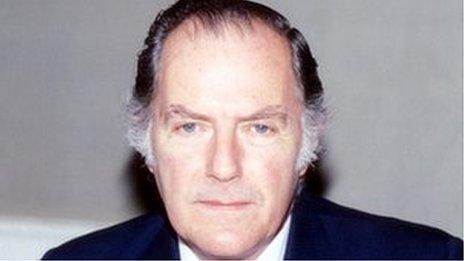Lord Prior: Former NI secretary says IRA violence 'did work'
- Published
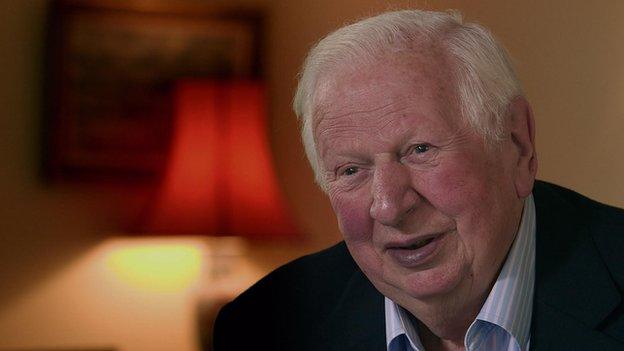
Lord Prior said as time went on it became possible for both sides to get into a position where it was easier to make peace than make war.
A former Northern Ireland secretary who served under Margaret Thatcher has said the IRA's violence worked.
Lord Jim Prior was secretary of state in 1981 at the time of the hunger strikes , externalwhen 10 republicans died in prison.
Mrs Thatcher said the men were criminals and refused to grant concessions.
But Lord Prior told a BBC documentary that she never really understood what the problem was.
"Violence probably does work, it may not work quickly and may not be seen to work quickly, but in the long run, one has to look back and say it did work," he told documentary maker Peter Taylor in a programme to be broadcast on Monday.
Lord Prior said the IRA had tried to kill him. It targeted the Tory cabinet during their party conference in Brighton in 1984, and the bomb killed five people including the Conservative MP, Sir Anthony Berry.
But Lord Prior said there was "a deeper side to it as well as a terrorist side".
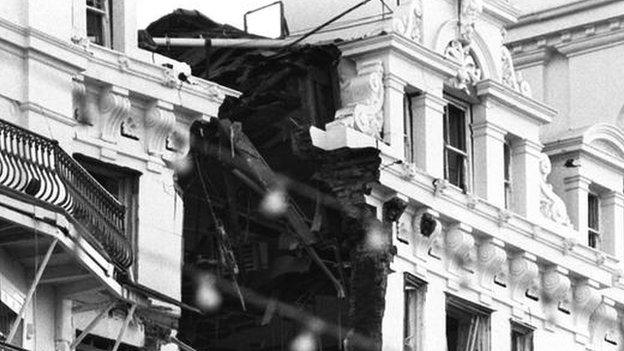
The Grand Hotel in Brighton after the 1984 IRA bomb at the Tory Party conference
"I know we did not win it but I am not certain the other side won," he said.
"As time went on it became possible for both sides to get into a position where it was easier to make peace than make war."
From 1979 until 1981, Lord Prior was Mrs Thatcher's employment secretary.
In 1981, after a series of disputes with her over economic policies, she moved him to the Northern Ireland Office.
He left the Cabinet in 1984 and stepped down from the Commons in 1987.
He is best remembered in Northern Ireland for introducing "rolling devolution" in 1982 to elect an assembly with gradually increasing powers. The nationalist SDLP decided not to take up seats and the body was dissolved in 1986.
Fellow Conservative peer and former party chairman Lord Norman Tebbit, whose wife was paralysed in the Brighton bombing, told Peter Taylor: "I have no sympathy for those who declared the war but having said all that, one way or another, a ceasefire was achieved and to that extent it was a price that was worth paying.
"I don't think this was a war that was won, it was a war which ended in a truce."
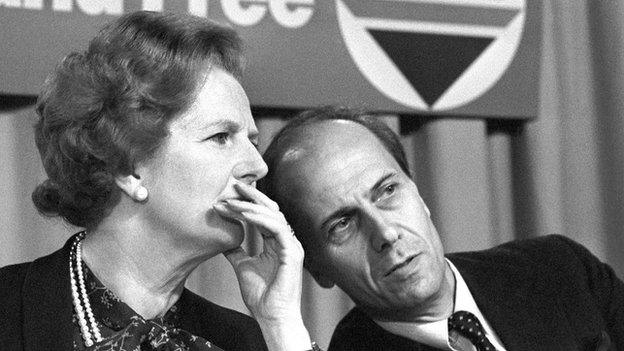
Prime Minister Margaret Thatcher with Employment Secretary Norman Tebbit at the Conservative Party press conference in London on 6 June 1983
The documentary Who Won The War will be broadcast on BBC One NI on Monday 29 September at 21:00 BST.
- Published26 September 2014
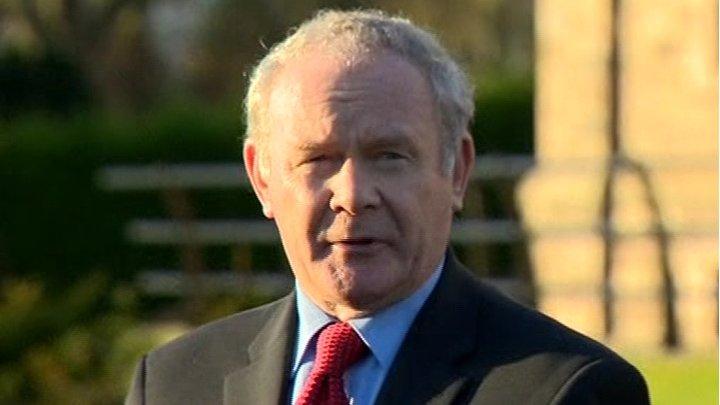
- Published26 September 2014
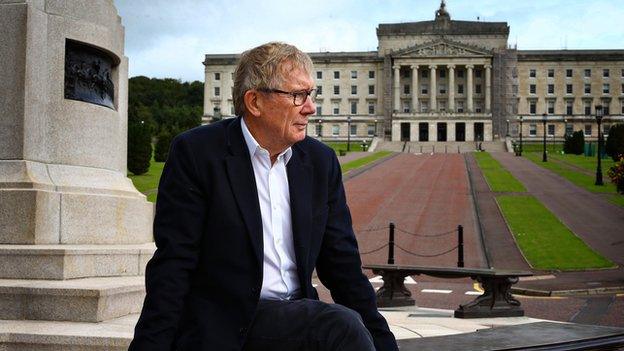
- Published26 September 2014

- Published27 December 2013
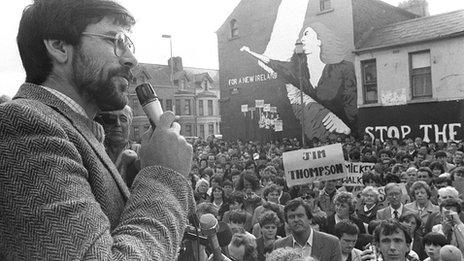
- Published30 December 2011
